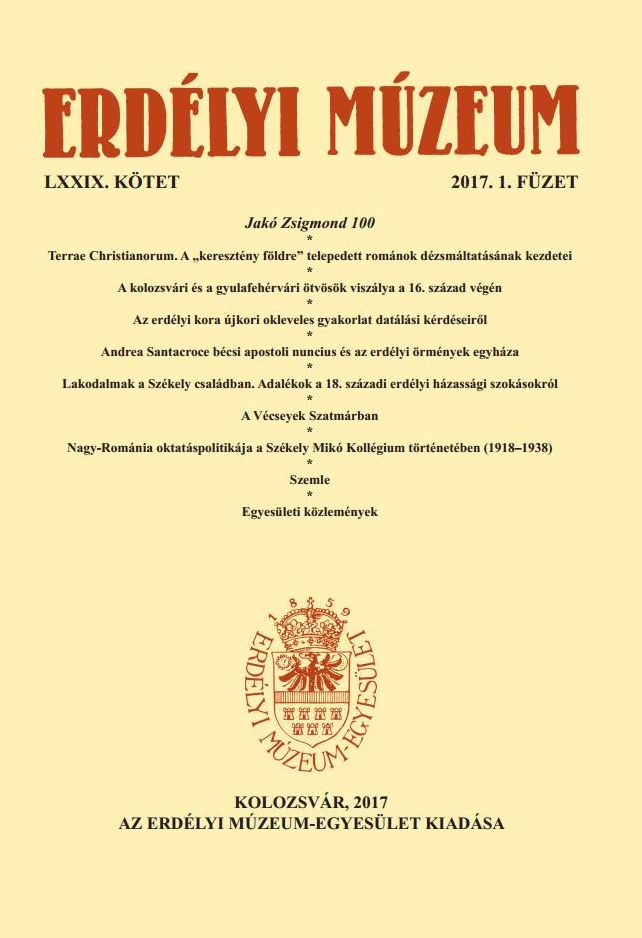„Ott békültem ki magammal és a sorssal…” László Gyula kolozsvári évei (1940–1949) a tudomány és a haza szolgálatában
“At That Place I’ve Become Reconciled to Myself and My Fate…” Gyula László’s Years in Kolozsvár (1940–1949) in Serving Science and His Homeland
Author(s): Gabriella M. LezsákSubject(s): Cultural history, Social history, Recent History (1900 till today)
Published by: Erdélyi Múzeum-Egyesület
Keywords: Gyula László; biography; Hungarian archaeology; Kolozsvár/Cluj; the period of 1940-1949
Summary/Abstract: Gyula László (1910–1998) “the most well-known and most effective Hungarian archaeologist” from the autumn of 1942 was working in North-Transylvanian Kolozsvár, lying by the Szamos bank reannexed by the Second Vienna Verdict. The Transylvanian young researcher spent the most determinant nine years of his life in this so-called ‛treasury’ city: he gave lectures on the Faculty of Arts of the Hungarian Royal József-Ferenc-University, while at the same time he was a research fellow of the Erdélyi Tudományos Intézet (ETI) [Transylvanian Scientific Institute] founded in 1940 by Pál Teleki, the Prime Minister of Hungary. In this paper I’ve accompanied Gyula László through these years – his career as a public character as well as a researcher. By the aid of contemporary documents I’ve analysed his tutorial activity at the university, his archaeological researches and his publications of these years, in details. I’ve also elucidated the fact how the experience of either his 1941–1942 winter study trip in Kiev under World War II or the events of the so-called Szárszó-Conference in 1943 had importantly influenced his later scientific life. Finally I was given attention to how, after the end of World War II, he had returned to the Transylvanian scientific and social life, observing the circumstances of his departure from Kolozsvár and also put a short glance on his later scientific career. By the end of this paper I’ve to conclude that these years in Kolozsvár fundamentally had controlled Gyula László’s vocation. The wide range knowledge accumulated there, the inspiring atmosphere had its positive, while his patriotism in public and political life – under the communist autocracy – has its negative influence on the scientific career of this excellent researcher. For all this Gyula László never became a servile person of the communist regime and because of his talent and outstanding professional knowledge he was able not only to carry on his scientific work but reaching the highest level of it. He put his undergraduates on the way to like archaeology and moreover, throughout his popular science lectures and books also the whole nation. Béla Pósta’s legacy, the inwardness of the Transylvanian archaeological school was partly inherited through the activity of Gyula László, determining Hungarian archaeology even today.
Journal: Erdélyi Múzeum
- Issue Year: LXXIX/2017
- Issue No: 1
- Page Range: 168-182
- Page Count: 15
- Language: Hungarian

